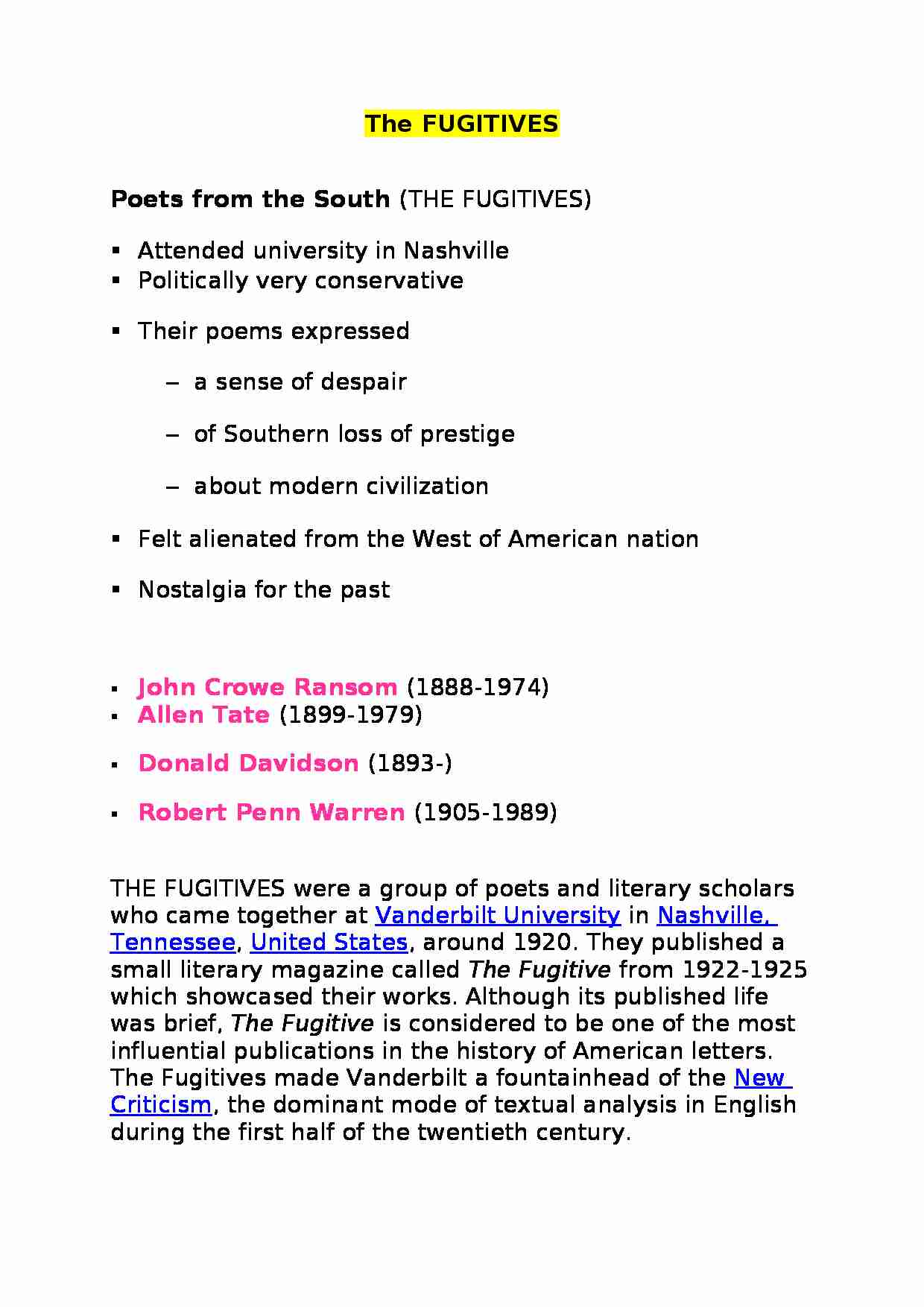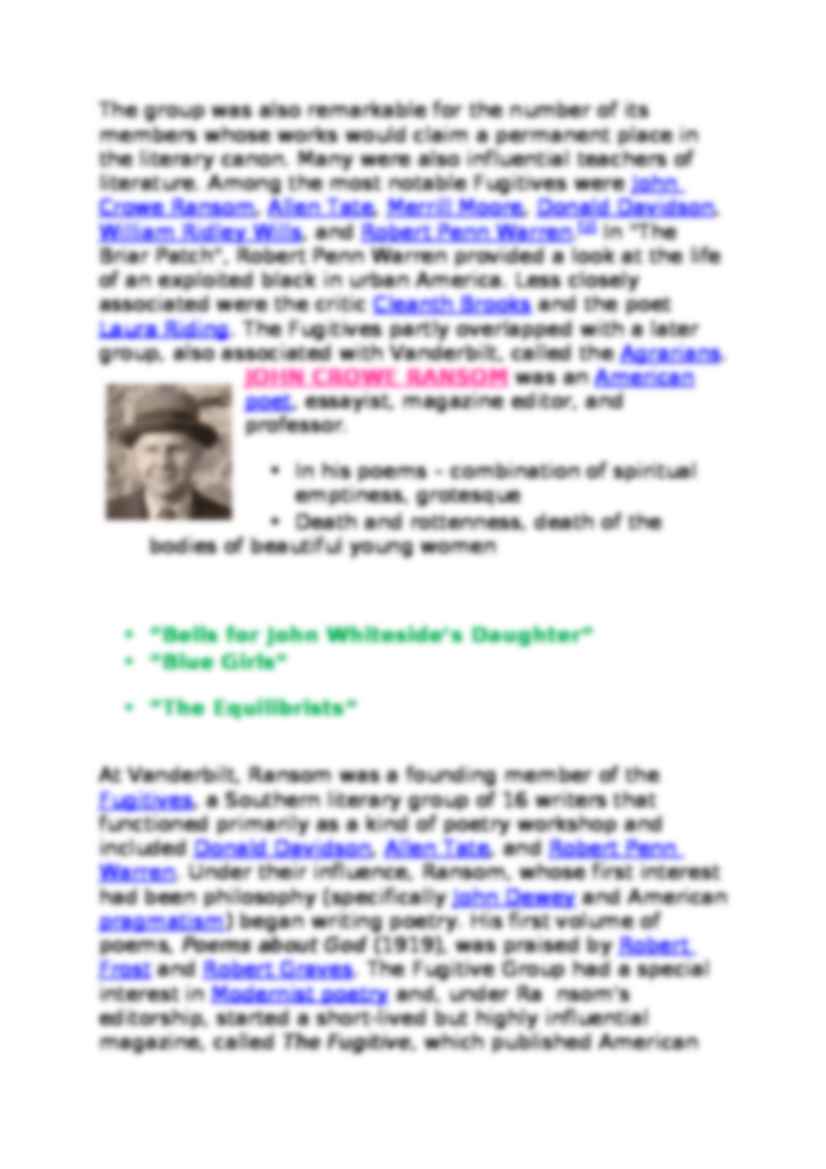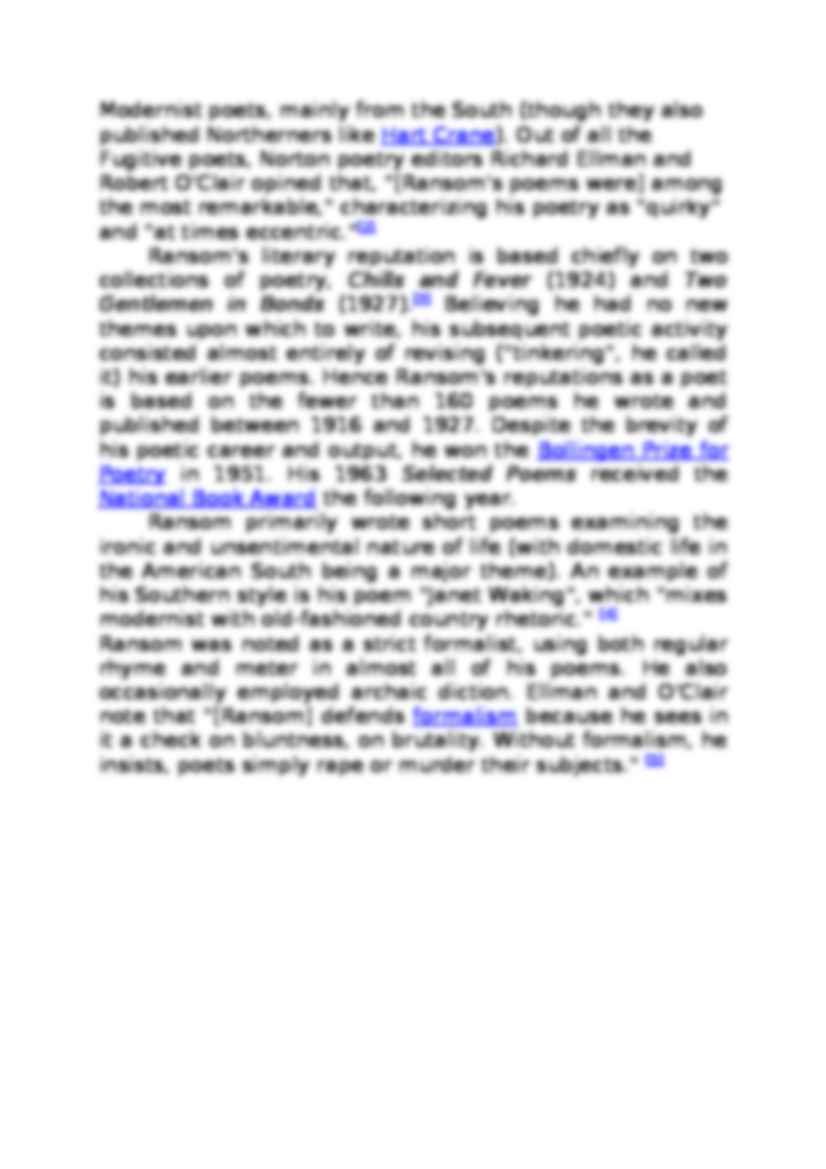To tylko jedna z 3 stron tej notatki. Zaloguj się aby zobaczyć ten dokument.
Zobacz
całą notatkę



The Fugitives
Poets from the South (the Fugitives)
Attended university in Nashville Politically very conservative
Their poems expressed
a sense of despair
of Southern loss of prestige
about modern civilization
Felt alienated from the West of American nation
Nostalgia for the past
John Crowe Ransom (1888-1974)
Allen Tate (1899-1979)
Donald Davidson (1893-)
Robert Penn Warren (1905-1989)
the Fugitives were a group of poets and literary scholars who came together at Vanderbilt University in Nashville, Tennessee, United States, around 1920. They published a small literary magazine called The Fugitive from 1922-1925 which showcased their works. Although its published life was brief, The Fugitive is considered to be one of the most influential publications in the history of American letters. The Fugitives made Vanderbilt a fountainhead of the New Criticism, the dominant mode of textual analysis in English during the first half of the twentieth century.
The group was also remarkable for the number of its members whose works would claim a permanent place in the literary canon. Many were also influential teachers of literature. Among the most notable Fugitives were John Crowe Ransom, Allen Tate, Merrill Moore, Donald Davidson, William Ridley Wills, and Robert Penn Warren.[1] In "The Briar Patch", Robert Penn Warren provided a look at the life of an exploited black in urban America. Less closely associated were the critic Cleanth Brooks and the poet Laura Riding. The Fugitives partly overlapped with a later group, also associated with Vanderbilt, called the Agrarians.
John Crowe Ransom was an American poet, essayist, magazine editor, and professor. In his poems - combination of spiritual emptiness, grotesque
Death and rottenness, death of the bodies of beautiful young women
“Bells for John Whiteside's Daughter”
“Blue Girls”
“The Equilibrists”
At Vanderbilt, Ransom was a founding member of the Fugitives, a Southern literary group of 16 writers that functioned primarily as a kind of poetry workshop and included Donald Davidson, Allen Tate, and Robert Penn Warren. Under their influence, Ransom, whose first interest had been philosophy (specifically John Dewey and American pragmatism) began writing poetry. His first volume of poems, Poems about God (1919), was praised by Robert Frost and Robert Graves. The Fugitive Group had a special interest in Modernist poetry and, under Ra nsom's editorship, started a short-lived but highly influential magazine, called The Fugitive, which published American Modernist poets, mainly from the South (though they also published Northerners like
(…)
… wrote and published between 1916 and 1927. Despite the brevity of his poetic career and output, he won the Bollingen Prize for Poetry in 1951. His 1963 Selected Poems received the National Book Award the following year.
Ransom primarily wrote short poems examining the ironic and unsentimental nature of life (with domestic life in the American South being a major theme). An example of his Southern style…
... zobacz całą notatkę






Komentarze użytkowników (0)